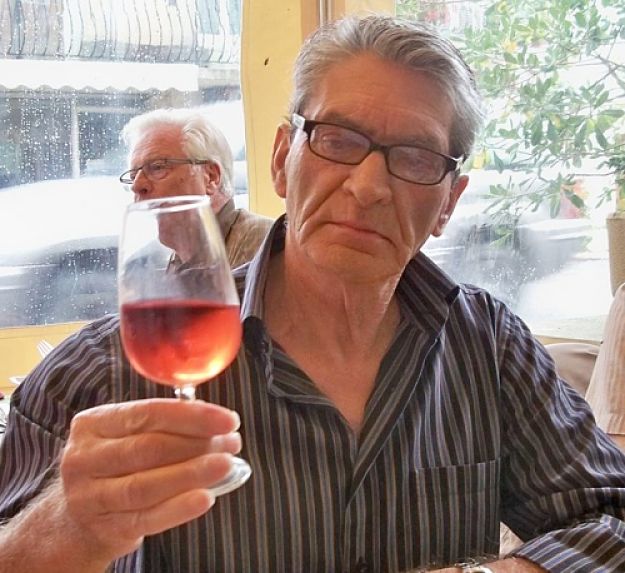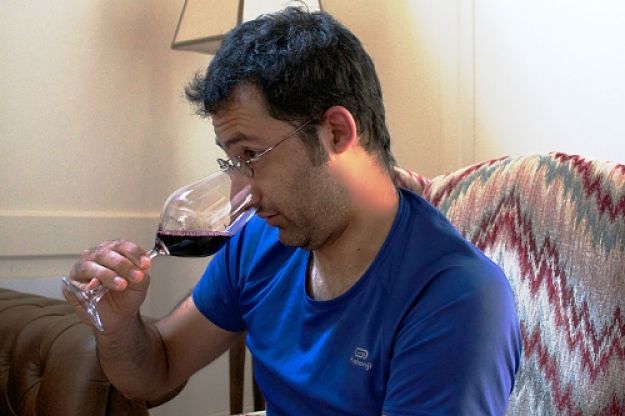Q&A How Do You Become an Expert Wine Taster - Art or Science?
Despite all the mystery and intrigue about wine tasting and how exclusive it is as a profession there is alarming evidence that the expert wine tasters are very inconsistent in their ranking of various wines. It sounds like a wonderful job for wine lovers, but is it all it is cracked up to be. How do you get to become a professional wine taster? What qualifications and experience do you need. Can anyone do it? What special qualities do you need to have such as a superior sense of taste or smell. Also how can you possibly get all the knowledge needed about the terroir of the local wines? Are tasters limited to a particular style of wine (red or white) or to a particular region?
This article will provide the answers to these questions. Winetours are a great way to test your skills as a wine taster.

Le Vin Parfait [CC-BY-2.0], via Wikimedia Commons
Can Wine Experts Judge Wine Accurately and Consistently?
Some wine makers have begun to question whether their wines are being properly rated and assessed. One wine may be rated as a gold medal winner in one competition, only to do badly in another. Results also vary from year to year. One recent test done in California produced some surprising results. In the test exactly the same wine was presented to a group of judges three times in batches of other wines. Over several years the study found that only 10% of the judges were consistent. Chance appeared to play a major part in which wines were awarded prizes.
In the test the judges scored the wines on a scale from 50 to 100, with most wines scoring from 70 to 80. The variability in the judge’s rating for the same wine was plus or minus four points. The same wine could be given a good score of 90 for the first tasting, then and 86 and finally a 94. These differences could mean the wine was a gold medal wine one minute and a mediocre one the next time.
Similar tests were conducted on a range of wine competitions across California, and the findings were similar. The medal awards were very inconsistent and highly variable. were distributed at random.
A French study tested the effect of the same wine presented in bottles with different labels in 2001. A group of 57 volunteers always rated the wine in a grand cru bottle higher than that for the same wine in a cheaper table wine bottle. Their descriptions for the wine were much more positive for wine in the more expensive bottle. For the cheaper bottle their descriptions were more negative using terms such as weak, light and flat. Other studies have shown that people almost always rate more expensive wines better, even when the wine is substituted.

By Véronique PAGNIER (Own work) [Public domain], via Wikimedia Commons
Why is Tasting and Rating Wines so Difficult?
Part of the reason is that wines are very complex. Wine tasting is also very subjective in relation to all the factors involved.
A wine scientist in Australia identified about:
- 30 distinct organic acids in wine
- 23 varieties of alcohol, more than
- 80 aldehydes and esters
- 16 different sugars
- assorted vitamins, minerals and other components.
The four types of taste detected by the tongue are: sourness, sweetness, umani and bitterness.
A professional taster looks for the balance of:
- sweetness from the sugar in grapes
- sourness from the acids, particularly tartaric and malic acid,
- bitterness from alcohol and polyphenols, including tannins.
The taste of wine has been described as a trinity of interacting tastes – acid, sugar and alcohol. However there is huge complexity in the flavours detected by the millions of receptors in the nose that characterises the wine by its aroma or bouquet. The taste and aroma of wine are intertwined together in complex ways.
More than 400 separate aromas and compounds have been detected in wine, each of which contribute to its taste and aroma:
- Some of these compounds are derived from the grape juice.
- Others are produced by the yeast during fermentation.
- The tertiary volatiles, are formed as wine matures in barrels or bottles.
People don’t realise how sophisticated olfactory system is at detecting aromas and the brain in interpreting them. Taste and aroma are v ery closely related.
Other external influences can affect the taste of a wine.
- Temperature plays a big part. Volatiles in wine are more active when wine is warmer.
- Colour affects how a taster interprets the taste and aroma of wine. Experiments have shown that adding a dye to a white wine so that it appeared to be a red variety often fooled many tasters.
Various other circumstances also affect the judgement of the wine taster. This includes
The food eaten before the tasting
- Whether the wine taster is hungry at the time
- The time of day
- Their tiredness,
- Their health
- Above all what they are expecting to taste, and the wines they have tasted before.
Clearly wine tasting is very subjective and imprecise.

marko8904 [CC-BY-2.0], via Wikimedia Commons
How to Become and Expert Wine Taster
Well-motivated people can become knowledgeable wine experts in less than a year. It would help if you could undertake a wine making course or wine appreciation course if one is offered locally. Also join various wine tasting groups in your area. You will need to read a lot about wines and wineries and taste a lot of good wines. One good way to learn is to attend a lot of wine competitions. Taste the winning wines and those that missed out on the medals. Talk to the judges if you can. Speaking with local wine experts and winemakers is also very important. The following tips outline the process.
Developing your Wine Palate and Training Your Sense of Sight, Taste and Smell
Wine tasting is an acquired skill. It is not something you are born with. Start with the varieties you like and become experts in those. Then move onto other varieties. It is important to taste wine properly so that you use the aroma and olfactory sensors in the roof of your mouth, at the back of your throat and in your nose. To taste a wine make sure you swish it around in your mouth, first and then send it to the back of your throat.
Practice Using a Wine Rating System
Practice using a wine ratings system such as the Parker System (developed by wine critic Robert Parker) This is a 100-point scale, but every wine gets a standard 50 points, so it is really a 50-100 point scale, similar to an academic exam rating system for ‘pass’ and above. The remaining 50 points are allocated as follows:
- 1- 5 points - Color, is the least important factor but still significant and contributes to the overall quality score (the last one below)
- 1-15 points – Wine Aroma
- 1-20 points - Flavor and finish
- 1-10 points – Ability of the wine to age and mature, and the overall quality of the wine
These numbers are tallied together to get an overall wine score. The categories generally used are:
- 95 - 100 Classic: a great and fabulous wine
- 90 - 94 Outstanding: a wine of superior character and style
- 85 - 89 Very good: a wine with special qualities
- 80 - 84 Good: a solid, well-made wine
- 75 - 79 Mediocre: a drinkable wine that may have minor flaws
- 50 - 74 Not recommended